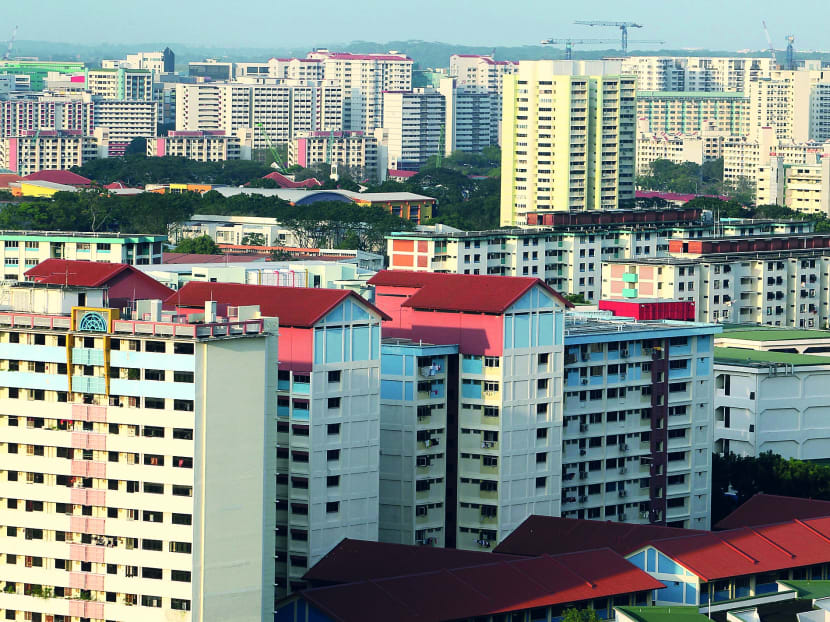Cooling measures worth tweaking
A common topic of discussion during home visits over the Chinese New Year holidays was whether the Government should relax some of its property cooling measures — to date, seven rounds of them.

The MAS has relaxed some conditions under the Total Debt Servicing Ratio framework for owner-occupied homes. It recognised that owners might find themselves trapped in situations not of their doing due to the framework. TODAY File Photo
A common topic of discussion during home visits over the Chinese New Year holidays was whether the Government should relax some of its property cooling measures — to date, seven rounds of them.
Some are in favour of such a move, but more feel the Government should not budge an inch. No surprise over who is on which side: The views are based heavily on self-interest.
The issue was brought into even sharper focus after Mr Kwek Leng Beng, Executive Chairman of Singapore’s second-largest listed property developer, City Developments, said that now was the right time for the Government to tweak the cooling measures.
Speaking on the sidelines of the Real Estate Developers’ Association of Singapore’s Spring Festival lunch last week, he said a measure that could be tweaked would be the Additional Buyer’s Stamp Duty (ABSD)on foreigners. The high-end segment has been languishing for a long time and sales have been pitifully slow.
More people are joining the debate as they sense that, if they do not speak up now, they will have to live with the consequences if the views of the opposing group were to prevail.
I feel a review leading to some adjustments to the cooling measures would be good, simply because no policy is perfect.
There will always be some unintended negative consequences on the genuine homebuyer or upgrader: The policymaker may say this is unavoidable as you cannot please everyone. True, the impact may be small or even insignificant if we are talking about only a single round of measures but, to date, there have been seven rounds since September 2009.
Surely the consequences for each round will accumulate and build up and, over time, will become significant. Judging from the slow progress made by policymakers in the major economies to normalise the low-interest-rate environment, we can expect our cooling measures to be around for some time, if not for a long time. Meanwhile, a segment of households will continue to be unfairly penalised.
If that is the case, a review of the cooling measures should be done and adjustments made to limit such effects. Just this week, the Monetary Authority of Singapore relaxed some of the conditions of the Total Debt Servicing Ratio (TDSR) framework for owner-occupied properties. It recognised that some owners might find themselves trapped in situations not of their doing as a result of the TDSR,which is not officially considered a cooling measure.
In the resale market, one thing is clear: The seven rounds of cooling measures have cumulatively hit the transaction volume very hard. The resale volume of homes has long been on the downward trend, but it has now been cut to the bare bones after the cooling measures first shifted buying activity to new homes and later dampened any kind of such activity.
Many years ago, when I first started my career in the real-estate industry, two out of three private-home-sale transactions were resales, with the other a new sale. Today, fewer than one in two home-sale transactions is a resale.
In the public housing market, the volume of Housing and Development Board resale flat transactions has been roughly halved from a few years ago. The number of agents serving the HDB resale market has fallen sharply.
The very low overall resale volume suggests that not much upgrading is taking place. Under normal market conditions, the majority of resale transactions result from upgrading, as households relocate to bigger or better homes as their incomes rise. Genuine upgraders with no investment motives on their minds tend to move from completed property to completed property.
Today, it appears that such activity has declined drastically. This is because the ABSD of 7 per cent for citizen households is now immediately payable upon the purchase of a second home. If you are an upgrader, you can claim a refund upon the selling of your first property.
At today’s high price levels, 7 per cent is a lot of cash to the genuine upgrader. It is no wonder that many are opting to stay put. This may lead to frustration if they cannot fulfil their housing aspirations or if they need more space. It adds pressure on an already stressful environment for the average household.
For every year of low resale volumes, you can expect a build-up of pent-up upgrading demand. How will the frustration be manifested? Let me hazard a guess: More road bullies and road rage? Blocking everyone for hours at the car park entrance?
You may laugh at this, but prolonged frustration adds to stress and some of us may reach the tipping point earlier than others.
Colin Tan is Director, Research & Consultancy at Suntec Real Estate





